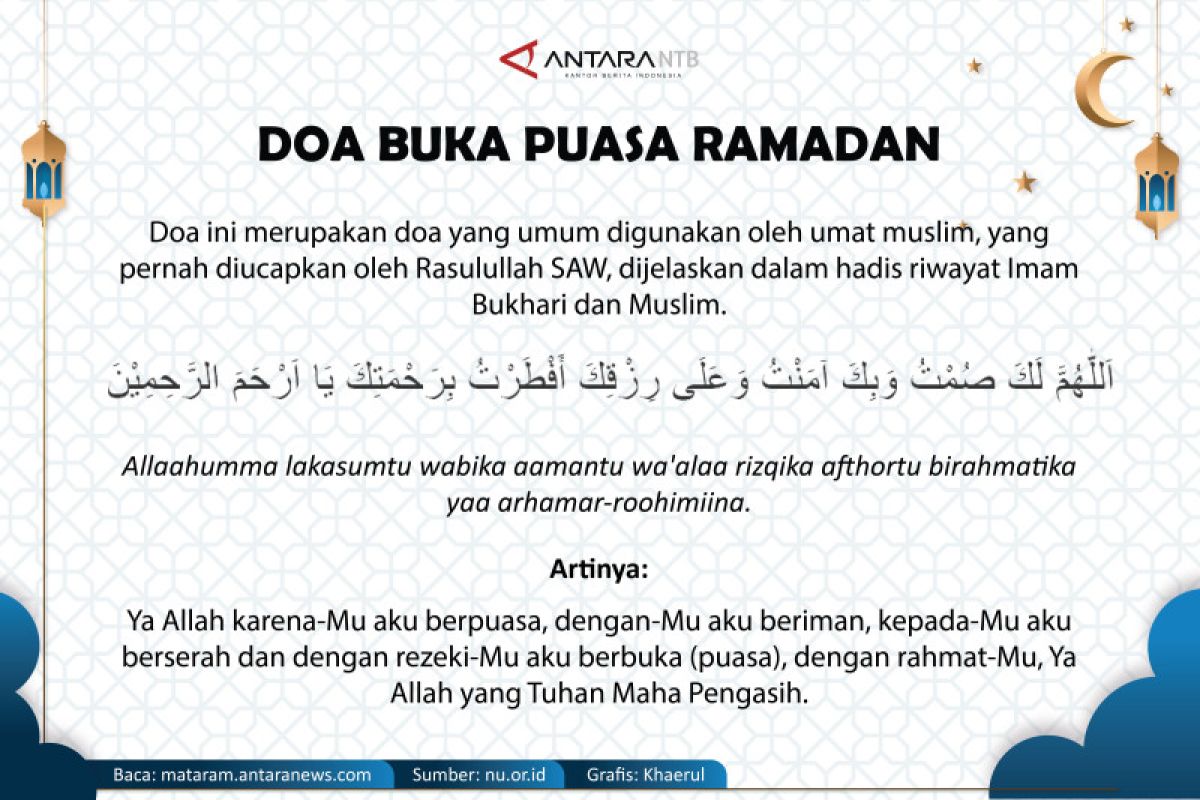Ramadan, the ninth month of the Islamic calendar, is a sacred time for Muslims worldwide. During this month, Muslims abstain from food, drink, and other worldly pleasures from dawn till dusk. As the sun begins to set, Muslims eagerly await the time for Iftar, the breaking of fast. This is a time of immense joy and gratitude, often celebrated with family and friends. In Indonesia, a predominantly Muslim country, the act of breaking fast is deeply ingrained in cultural and religious practices.
Doa Berbuka Puasa is the Islamic prayer recited before consuming food during Iftar. It is a heartfelt expression of gratitude to Allah for providing sustenance and for guiding Muslims through the holy month. While the specific wording of the doa may vary, the essence remains the same: acknowledging Allah’s blessings and seeking His forgiveness.
The Significance of Doa Berbuka Puasa in Indonesia
In Indonesia, where Islam is a major religion, the act of reciting Doa Berbuka Puasa holds immense significance. It is not merely a religious obligation but a deeply ingrained cultural practice.
Expression of Gratitude: Reciting the doa is a way to express gratitude to Allah for providing sustenance and for guiding Muslims through the month of Ramadan.
Common Practices During Iftar

In Indonesia, Iftar is a joyous occasion celebrated with family, friends, and the wider community. Here are some common practices observed during Iftar:
The Adhan (Call to Prayer): As the sun begins to set, the muezzin calls out the Adhan, signaling the time for Iftar.
Doa Berbuka Puasa: A Sample
Here is a sample of a common Doa Berbuka Puasa in Indonesian:
“Bismillahirrahmanirrahim. Allahuma inni auzububika min jua’i wa daui wa sayyi-il ‘amal.”
Translation:
“In the name of Allah, the Most Gracious, the Most Merciful. O Allah, I seek refuge in You from hunger, thirst, and evil deeds.”
The Importance of Intention
While reciting the prescribed doa is important, it is crucial to understand that the intention behind the act is equally significant. Breaking fast should be done with sincerity, gratitude, and a focus on spiritual rejuvenation. It is an opportunity to purify the soul and strengthen one’s relationship with Allah.
Beyond the Prayer: Cultivating Spiritual Growth
Ramadan is a time for spiritual growth and self-reflection. While reciting Doa Berbuka Puasa is an important part of the Iftar experience, it is crucial to remember that the true essence of Ramadan lies in cultivating a deeper connection with Allah through acts of worship, such as prayer, Quran recitation, and charity.
The Role of Community in Ramadan
In Indonesian society, Ramadan is a time for increased community engagement. Many mosques and community organizations organize various programs, such as:
Tarawih prayers: Special nightly prayers performed during Ramadan.
These community-based initiatives foster a sense of solidarity and shared responsibility among Muslims during the holy month.
The Beauty of Ramadan in Indonesia
Ramadan in Indonesia is a truly unique and enriching experience. The vibrant atmosphere, the spirit of community, and the deep-rooted cultural traditions create a truly special ambiance. From the bustling Ramadan markets to the melodious calls to prayer echoing through the streets, the spirit of the holy month is palpable throughout the country.
Conclusion
Doa Berbuka Puasa is a cornerstone of the Iftar experience in Indonesia. It is a powerful reminder of the blessings of Allah and an opportunity to seek His forgiveness and guidance. While reciting the doa is important, it is crucial to remember that the true essence of Ramadan lies in cultivating a deeper connection with Allah through acts of worship, charity, and self-reflection. By embracing the spirit of Ramadan and engaging with the community, Muslims in Indonesia can make the most of this blessed month and emerge spiritually renewed.


.png?w=200&resize=200,112&ssl=1)


